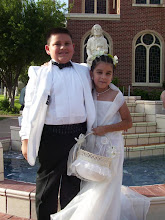
A Long Way Gone: Memoirs of a Boy Soldier by Ishmael Beah
It is 1993 in Sierra Leone and 12 year old Ishmael is on his way to a talent show in a neighboring town, Mattru Jong, with his brother Junior. When they arrive at their destination, they find out rebel soldiers have taken control of their town, Mogbwemo, and killing off the people that live their. They both decide to go back to Mogbwemo to find their parents, but because it has become dangerous they have to return back. For a couple of days, they both stayed in Mattru Jong with friends, until the rebel forces invaded that town and they had to flee again. Ishmael got separated from his brother and after a couple of weeks of walking alone to the next village he gets together with a group of boys and head off to Yele. They believe the village to be a safe place for them since it is occupied by Sierra Leone Armed Forces. They had to go through many villages before getting their and most of the time they were run off. People were afraid of them, because they thought they were part of the rebels. They faced hunger, dehydration, and fatigue. At times, they would find a friendly face that would offer them shelter and food. Most of the times, they had to steal or face starvation. They walked for several weeks, until Ishmael sees a familiar face, Gasemu. He tells Ishmael that his family was living in the near by village and would be happy to know he is alive. The news lifts Ishmael spirits and they head off to the village. When they get near the village they start hearing gunshots and people screaming. They run into the city and find all the villagers dead. Ishmael couldn't believe he was so close to seeing his family again and now they were gone. Since the village was destroyed and their were still rebel forces there, they went to Yele. They felt safe in Yele and stayed at an orphanage for young boys that had lost their families to the war. The rebels tried to take over Yele and many soldier's lives were lost. Lieutenant Jabati recruited the young boys to fight against the rebels and take revenge for the loss of their families. They were given drugs and sent to kill the rebels and raid neighboring villages for food, gas, and drugs. Ishmael became a Junior Lieutenant, committed heinous crimes in the name of his new family, and was hooked on drugs. In January 1996, four men from UNICEF arrived at their village and spoke to the lieutenant. The lieutenant gathered all the young boys and told them they had to go with the men. The UNICEF men took them to Benin House in Freetown, a rehab compound where they were given food, counseling, and safe shelter. Ishmael and the rest of the boys were not happy. They fought amongst each other and were yearning for drugs. Ishmael went through withdrawal symptoms and was rebellious with the staff. Esther, a nurse befriended him and helped him through the withdrawal symptoms, nightmares of the war, and guilt for participating in it. At the end of the six month program, he went to live with his uncle Tommy and his family. Things were going well for Ishmael and he was chosen to represent Sierra Leon at the U.N. in New York. He met many wonderful people and was able to voice the situation affecting children in his country. He went back home and things were good for a while. The army he used to serve overthrew the government and took over Freetown. Ishmael escaped Freetown and fled to the capital of Guinea, Conarky. From there he flew to New York with the help of a Laura, a storyteller that had befriended him at the U.N. conference. She became his mother and he attended school there. This is a book I would recommend for upper grade students or political science classes. The book graphically describes the war in Sierra Leon and how the children are affected by the circumstances they have been pushed into. The book will help students better understand that wars are fought differently in other areas where children are exploited and forced to survive or be killed. It gives a first person account on a real war that is still waging on in that country.



































